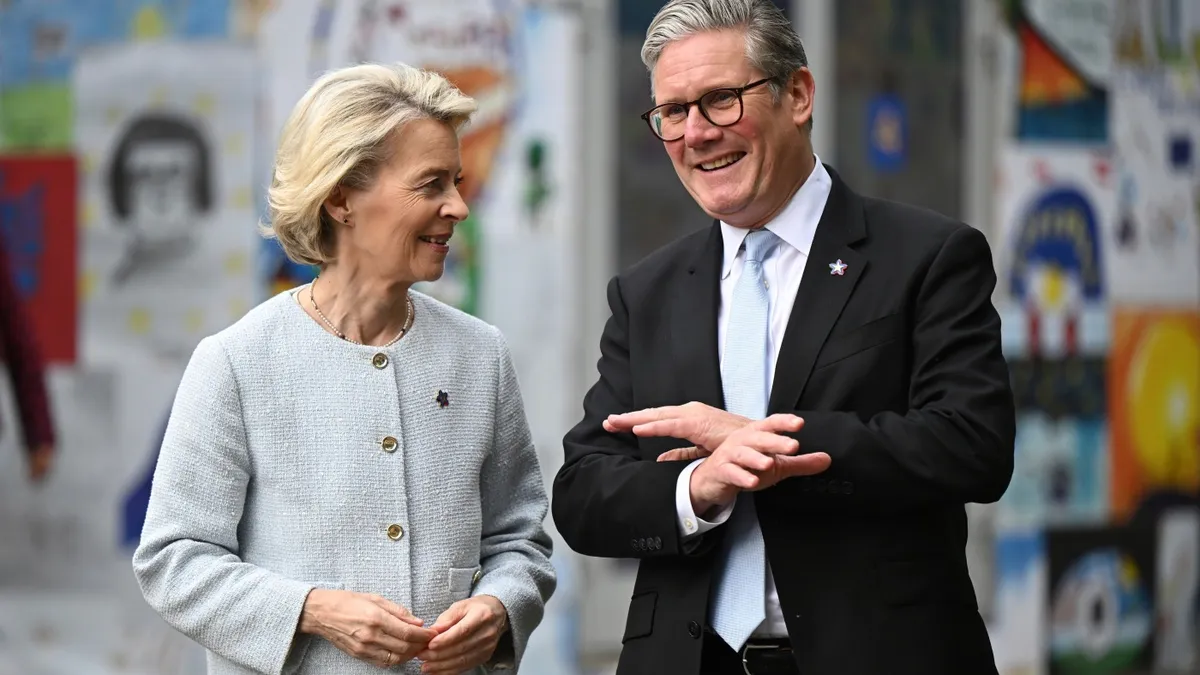
This Monday marks a significant moment as Britain and the European Union convene for their first official summit since the Brexit transition began. Analysts observe that this reunion resembles ex-partners realizing their need to collaborate for the sake of their shared interests, rather than a rekindling of romance. It has been nine years since the historic 2016 referendum resulted in the United Kingdom's decision to leave the EU, and five years since the formal exit took place in 2020. This summit highlights the complex dynamics of UK-EU relations, shaped by both the successes and challenges of Brexit.
Recent polls reveal a shift in public opinion, with a majority of Britons expressing regret over the decision to leave the EU. This phenomenon, often referred to as Bregret or Regrexit, reflects concerns over the economic fallout and strained relations with key trading partners. While some citizens celebrate the newfound control over borders and the reduction of foreign regulations, others lament the adverse impacts on the economy. Despite this, there's a growing sense of Bresignation, suggesting that many have accepted the decision and are now focused on making the best of the current situation.
British Prime Minister Keir Starmer, who has been vocal against Brexit, aims to establish a "reset" with the EU, acknowledging that both parties still have numerous issues to manage collaboratively. As Jill Rutter, a former civil servant involved in Brexit negotiations, puts it, the situation resembles a couple who, despite their breakup, must still navigate shared responsibilities. The summit will focus on practical matters rather than an overhaul of the existing agreements.
The summit will address specific topics that impact both the UK and EU members. Key discussions are expected to revolve around fishing rights, summer job opportunities for students, and the use of airport e-passport gates. Notably, the UK will maintain its distance from the EU's single market, continuing to negotiate independent trade deals, such as the recent agreements with the U.S. and India. However, crucial issues like immigration remain contentious, as the British populace continues to grapple with the implications of border control and the desire to limit immigration.
Starmer's efforts to engage with the EU have drawn criticism from right-wing factions, including the Reform UK party, led by Nigel Farage. Some media outlets have accused him of betraying the will of voters from the 2016 referendum. With the opposition Conservative Party also opposing any renegotiation, Starmer faces a delicate balancing act, aiming to avoid backlash from critics while fostering a constructive dialogue with the EU.
Despite the focus on smaller-scale negotiations, two significant areas of cooperation are emerging: defense and trade, particularly in light of the ongoing conflict in Ukraine. Both the UK and EU have emerged as strong supporters of Ukraine, and discussions around defense strategies and potential peacekeeping roles are high on the agenda. The shifting geopolitical landscape, influenced by the Trump administration and its impact on international security commitments, has prompted both parties to reinforce their collaborative efforts.
The upcoming summit symbolizes more than mere diplomacy; it represents a recognition of mutual dependencies in an increasingly complex world. As Anand Menon, a political scientist at King's College London, notes, the challenges posed by global events necessitate a united front. While Brexit was marked by division, the current geopolitical climate underscores the importance of collaboration between the UK and the EU, paving the way for a more resilient partnership amidst global uncertainties.